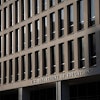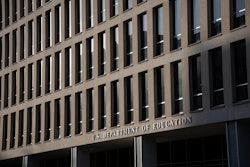After a challenging year riddled with accusations of questionable contracts at Morgan State University, President Earl S. Richardson has announced his retirement from the historically Black institution at the end of next year.
In an open letter, Dr. Richardson wrote, “Thanks to you, the University has made great strides during my presidency. The most notable success is undoubtedly its advancement to doctoral research university status. However, despite this success, we are at a critical juncture in the University’s history, with the issue and goal of institutional parity yet to be resolved.
“So, although we have achieved a great deal, much is yet to be done; and we must not allow ourselves to be distracted for a moment from achieving this goal. Instead, we must continue an aggressive pursuit of the goal of making Morgan State University one of the very best institutions in the state,” the letter stated.
Richardson, the 11th president of the Baltimore, Md., institution, is credited with strengthening academic programs, improving fiscal management, stabilizing student enrollment, accelerating fund-raising efforts and renovating the university’s physical plant. To his credit, the university now enjoys modern, state-of-the-art facilities resulting from more than $500 million in capital improvements.
However, it is part of that success that has come in question as part of a feud about a public records request. Richardson is reported to have refused to show his employment contract to state Del. Galen Clagett, a Frederick County Democrat on a panel that oversees Morgan’s budget. According to the Baltimore Sun, Richardson has suggested that Clagett’s motives were “discriminatory or retaliatory.”
The controversy peaked when Clagett requested public contracts for the university. A legislative audit released this year found multiple managerial mistakes relating to building contracts, which led to an investigation by the attorney general’s office.
The university released a statement on its web site addressing the issue: “The University has been advised that a recent legislative audit revealed various deficiencies in the University’s management and oversight of certain capital improvement projects. It appears the university did not comply with state procurement regulations by failing to obtain the appropriate approvals prior to undertaking certain campus improvements.















